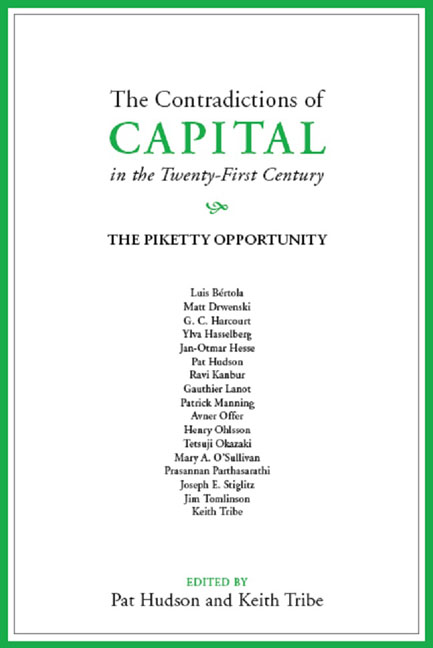13 - Piketty and India
Published online by Cambridge University Press: 16 August 2023
Summary
Thomas Piketty’s Capital in the Twenty-First Century has been celebrated for bringing inequality to the forefront of political and policy discussions in the US and around the world. From the standpoint of the economic historian, the book, along with several earlier articles by Piketty and others, is also to be commended for compiling detailed data on the evolution of income and wealth across a number of nations, with a focus upon France, Britain and the US. France especially provides sources that are not found elsewhere, dating from the period of the French Revolution and allowing for a remarkable reconstruction of wealth and its distribution. For Britain and the US, abundant material allows for a detailed study of wealth and income over the long run.
In the case of India, Piketty has, along with Abhijit Bannerjee, assembled data on the evolution of top incomes from 1922 to 2000. Drawing upon income tax returns, which they note have several serious limitations, they identify some major shifts in the share of total income going to top earners. They find that this share followed a U-shape, with a decrease from the early 1940s until the early 1980s, when it began to increase. The fall in top incomes took place during the Second World War and the socialist planning period in India, while the rise begins about a decade before the implementation of neoliberal policies but accelerates with that economic policy shift.
Data on income and wealth comparable to what Piketty provides for France, Britain or the US will never be assembled for India for the period before 1922. The sources that provide the empirical material for such an exercise in France and elsewhere do not exist for India, and there is no way to get around this limitation. As a result, we will never be able to construct for the Indian case the striking graphs which trace the evolution of income and wealth that Piketty provides for nineteenth- and twentieth-century France. Even more importantly, there are critical forms of Indian wealth that are not amenable to the quantification in which he engages.
- Type
- Chapter
- Information
- The Contradictions of Capital in the Twenty-First CenturyThe Piketty Opportunity, pp. 237 - 246Publisher: Agenda PublishingPrint publication year: 2016

